
Family Phrasal Verbs
2 min readВ англійській мові існує понад 3000 фразових дієслів, що робить їх одним із наймасштабніших і найскладніших аспектів мови. Особливо складними вони є тому, що багато з них мають кілька значень, від буквальних до дуже ідіоматичних. Також їх використання у повсякденному мовленні є критерієм досягнення дуже високого English level.
Що робить phrasal verbs особливими?
- They are highly idiomatic
- Часто мають кілька значень (“pick up” – to lift, learn, collect, or improve)
- Native speakers використовують їх набагато частіше ніж formal equivalents
- Вони координально змінюють значання в залежності від preposition:
- look up – to search for information
- look after – to take care of someone/something
Основні види:
- Separable phrasal verbs: you can put the object between the verb and particle
- turn on the light = turn the light on
- pick up the book = pick the book up
- Inseparable phrasal verbs: the verb and particle must stay together
- look after children (✓)
- look children after (✗)
- run into a friend (✓)
- run a friend into (✗)
- Three-Part: Verb + Particle + Preposition
- Combines both: particle changes meaning + preposition connects to noun
- put up with (tolerate) – ‘up’ changes meaning, ‘with’ connects to noun
- look forward to (anticipate) – ‘forward’ changes meaning, ‘to’ connects
- get on with (continue) – ‘on’ changes meaning, ‘with’ connects
Family Phrasal Verbs
Використання фразових дієслів робить розмову більш природною та емоційно відтінковою.
Here are some essential ones:
- “Bring up” – to raise children – виховувати дітей (Mary brings up three kids on her own)
- “Fall out with” – to have an argument or disagreement – мати суперечку або незгоду(He fell out with his brother over a small thing)
- “Get along with” – to have a good relationship – мати хороші стосунки (She gets along well with her in-laws)
- “Grow apart” – to become less close over time – ставати менш близькими з часом (The sisters grew apart after moving to different cities)
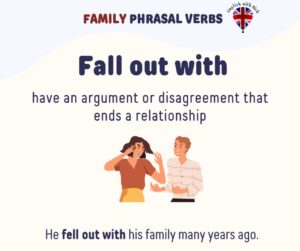
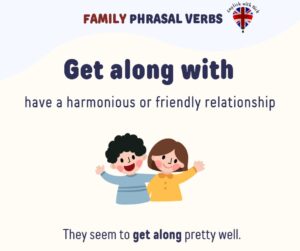
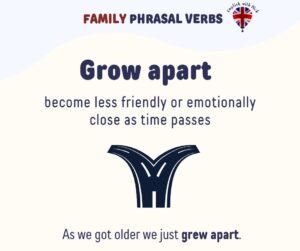
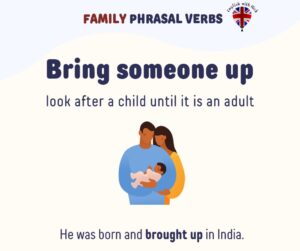
Next time: We’ll explore business phrasal verbs! Stay tuned.
Related posts
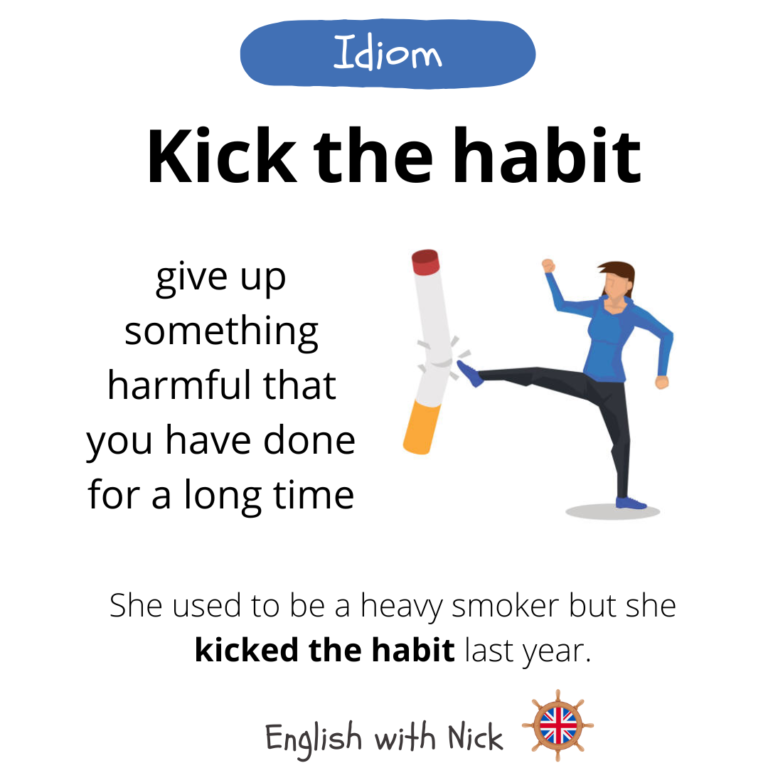 Kick the Habit: Origins and Meaning
Kick the Habit: Origins and Meaning
Discover the origins and meaning of the phrase ‘kick the habit.’ Learn how it evolved from drug withdrawal symptoms to a powerful metaphor for breaking bad habits, with examples to inspire your journey to change.
1 min read What’s in a Name? Uncovering the Hidden Stories Behind Eurasian Country Names
What’s in a Name? Uncovering the Hidden Stories Behind Eurasian Country Names
Do you know why India is called India, or what Thailand’s name reveals about its people’s values? Country names often carry fascinating stories of ancient civilizations, cultural pride, and historical transformations.
4 min read